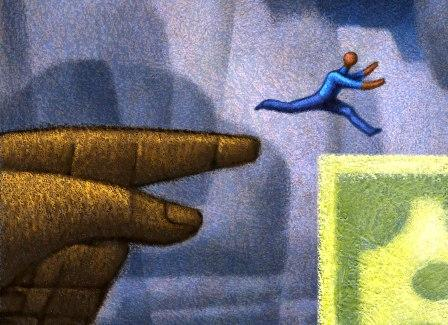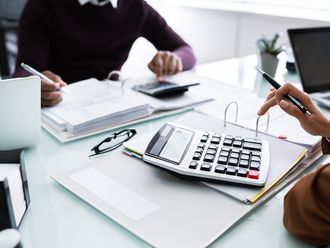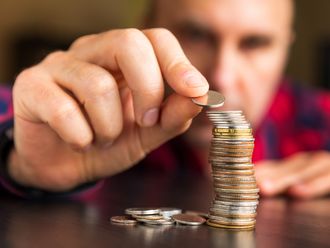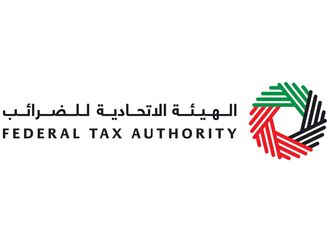
The current ultra-low interest phase in major world economies that has brought yields of simple bank savings close to zero has caused a lot of moaning and groaning among the aggrieved parties of small savers. The business case for them is not exactly elevating. Factoring in inflation and — if applicable — capital gains tax, savings carry a loss when kept on a bank’s books.
Checking the current interest rates on savings accounts in Dubai is a disappointing endeavour. The highest rates offered — mainly on no-frills online accounts — rarely exceed 0.6 per cent per annum. Given the expected average 2014 inflation rate in Dubai of 2.5 per cent, this is clearly not a winning game.
More bad news. There are two options that a saver has for achieving higher returns. One is to wait for the central bank to raise interest rates. The other is to take higher risk, such as by investing the money in financial markets.
“The best way to beat inflation is to put your money to work,” says Damodhar Mata, an independent financial advisor in Dubai. “Investing can be much more rewarding than just beating inflation if a long-term view is taken,” he adds.
GN Focus looks at what options an individual, under the current market conditions, has for receiving higher returns on, let’s say, $10,000 (about Dh36,730), if invested in financial markets. But as the old rule goes: only higher risks allow for higher returns, which has to be taken into account when putting money to work. As Mata says, “A savings account is a reliable place for an emergency fund, whereas financial markets are not.”
Fixed-deposit account
This is the safest option after a normal savings account. Funds are tied up for a month to several years, and interest rates are higher. The best offers for fixed deposits in the UAE do not currently exceed 1.75 per cent. While this still doesn’t beat inflation, it can be a good option for the cautious. However, when investing in a fixed deposit account it is important to consider that premature withdrawals in most cases are possible but do carry a penalty.
Yield: 1.75%
Dividend or income funds
Such funds allow for the investment in stocks with the option to receive regular dividend payments, thus leveraging the risk of investing in the stock market. Share prices may fall, but dividend funds always pay — unless there is a major financial meltdown. To minimise risk, the investment should be made in mutual dividend funds or exchange-traded dividend funds that offer a diverse group of stock holdings. These funds will then spread risk across companies, sectors and regions.
The best dividend funds on the market currently yield above 6 per cent, in addition to a strong performance of the funds themselves due to the bullish stock market this year.
Yield: from 2% to more than 6%
Corporate bonds
According to Bloomberg, the yields of almost half the world’s government bonds have already been driven below 1 per cent due to the low-interest policy of central banks in leading economies, but corporate bonds can still be a relatively good option. High-quality corporate bonds currently yield around 3 per cent, and medium-risk corporate bonds yield between 5 and 7 per cent. However, if individual bonds are sought they should be chosen wisely and with the advice of a financial expert to avoid pitfalls. Corporate bond mutual funds are an alternative to minimise risk through diversification.
Yield: 3-7%
Gold and precious metals
In times of dwindling interest rates, many people consider purchasing gold, either in a physical form or via gold-linked investment accounts where the metal is traded like a currency.
Caetano Fernandes, Senior Vice-President and Head of Mashreq Gold at Mashreq bank, says, “Gold is considered a safe haven during times of uncertainty, major geopolitical tension or economic adversity.
“Gold has also historically been considered an effective hedge to inflation.” Fernandes says the volume of gold trades in Dubai shot up from a mere $5 billion in 2003 to a whopping $75 billion in 2013.
However, while people feel attracted to gold not only for its actual market value but also for its perceived intrinsic value, gold is not a sure bet. After a relatively steady rise in its price following the financial crisis in 2008, gold peaked at the end of 2012 and dropped almost 30 per cent in 2013. In 2014, it only recovered a part of the previous year’s losses, rising 11 per cent in the first six months. However, the rule is that if a major currency such as the dollar or euro drops while inflation rises, gold prices advance. But Adrian Ash, Research Analyst at UK-based analyst firm BullionVault, says, “Most analysts forecast fresh losses for gold prices in the back-half of 2014, pointing to US Fed policy and the rising stock market as the primary reasons for selling.”
For those interested in investing in gold, a number of UAE banks offer gold-linked investment accounts.
Yield: 11% in the first half of 2014, but subdued forecast
Investment in paying off existing debts
When interest rates fall, it happens that many get stuck in a comparably high-interest loan. This is the time to pay off debts, which, in fact, can be more constructive than seeking meagre returns from a low-risk financial investment. Paying off part of a home loan or credit card debt can save considerably on interest.
Yield: Indirect yield by reducing liabilities depending on an individual’s debt situation n












